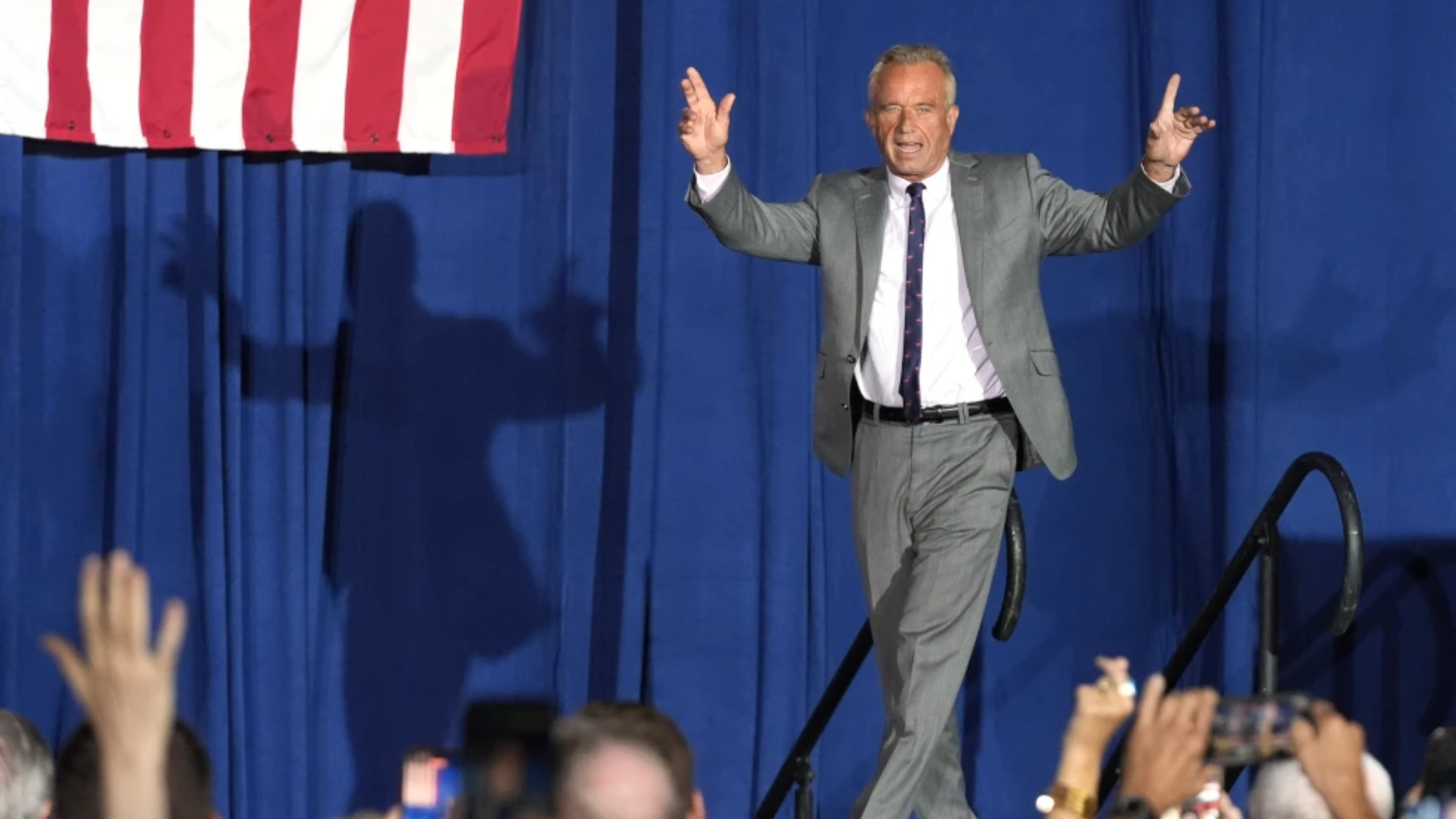WASHINGTON — (CNN) Forty-one states have defied the Trump administration’s request for private voter information, according to a CNN inquiry to all 50 states.
State leaders and voting boards across the country have responded to the letter with varying degrees of cooperation — from altogether rejecting the request to expressing eagerness to supply information that is public.
Kansas Secretary of State Kris Kobach, vice chairman of the Presidential Advisory Commission on Election Integrity, which President Donald Trump created by executive order in May, sent a letter to all 50 states last Wednesday requesting a bevy of voter data, which he notes will eventually be made available to the public.
The order came months after Trump claimed without evidence that millions had voted illegally in the 2016 presidential election. When states began to express concerns about the legality of his administration’s efforts to investigate voter fraud, Trump called them out on Twitter on Saturday, questioning whether they were hiding something.
Numerous states are refusing to give information to the very distinguished VOTER FRAUD PANEL. What are they trying to hide?
— Donald J. Trump (@realDonaldTrump) July 1, 2017
The information the commission is seeking includes registrants’ full names, addresses, dates of birth, political parties, the last four digits of their social security numbers, a list of the elections they voted in since 2006, information on any felony convictions, information on whether they were registered to vote in other states, their military status, and whether they lived overseas.
The vice chairman’s letter twice requests only “public” voter information, and Kobach clarified the specifics of his request Friday: “Every state receives the same letter, but we’re not asking for it if it’s not publicly available,” he told The Kansas City Star.
But the commission, which is chaired by Vice President Mike Pence, seemed to misunderstand voter privacy laws nationwide. Every state that responded said it could not provide Social Security numbers, for example. Others said they consider information such as birth dates and party affiliations to be private.
[van id=”van/ns-acc/2017/07/03/NA-82MO_CNNA-ST1-10000000040fb363″]
What’s more, Kobach asked states to supply the information through an online portal. Many states have rejected this specific request, noting that the commission should file a voter information request through established state websites, as any other party would.
As of Monday afternoon, three states — Florida, Idaho and Nebraska — are still reviewing the commission’s request. Another three states — Hawaii, New Jersey and Wyoming — have not returned CNN’s request for comment. And while seven states are still awaiting a letter from the commission, four of them — New Mexico, Michigan, South Carolina and West Virginia — have already pledged not to provide voters’ private information.
Just three states — Colorado, Missouri and Tennessee — commended Kobach’s attempt to investigate voter fraud in their respective statements.
“We are very glad they are asking for information before making decisions,” said Colorado Secretary of State Wayne Williams, a Republican. “I wish more federal agencies would ask folks for their opinion and for information before they made decisions.”
Missouri Secretary of State John Ashcroft, also a Republican, echoed Williams’ sentiment in a statement Friday: “The commission’s questions are fair and we will be glad to assist in offering our thoughts on these important matters,” he said. “I look forward to working with Sec. Kris Kobach and the commission on its findings and offer our support in the collective effort to enhance the American people’s confidence in the integrity of the elections process.”
Other states were more critical. Eighteen openly criticized the commission’s request.
“The President’s Commission has quickly politicized its work by asking states for an incredible amount of voter data that I have, time and time again, refused to release,” said Louisiana Secretary of State Tom Schedler, a Republican, on Monday afternoon. “My response to the Commission is, you’re not going to play politics with Louisiana’s voter data, and if you are, then you can purchase the limited public information available by law, to any candidate running for office. That’s it.”
Mississippi’s Secretary of State Delbert Hosemann, also a Republican, took the criticism a step further.
“My reply would be: They can go jump in the Gulf of Mexico, and Mississippi is a great state to launch from,” Hosemann said in a statement Friday. “Mississippi residents should celebrate Independence Day and our state’s right to protect the privacy of our citizens by conducting our own electoral processes.”
Three state leaders also raised doubts about the integrity of the commission itself, and many questioned the existence of widespread voter fraud.
“This entire commission is based on the specious and false notion that there was widespread voter fraud last November,” Virginia Gov. Terry McAuliffe, a Democrat, said Thursday. “At best this commission was set up as a pretext to validate Donald Trump’s alternative election facts, and at worst is a tool to commit large-scale voter suppression.”
“Given Sec. Kobach’s history we find it very difficult to have confidence in the work of this Commission,” Connecticut Sec. of State Denise Merrill, also a Democrat, said in a statement Thursday, pointing to what she alleged was Kobach’s “lengthy record of illegally disenfranchising eligible voters in Kansas.”
As Kansas’ secretary of state, Kobach backed a national cross-referencing system to allow states to check their voter rolls for overlaps, which drew criticisms that the system was too prone to allowing legitimate voters to be purged from voting systems. Kobach also fought unsuccessfully in court for the ability to require verification of citizenship on voter registration forms.
The-CNN-Wire ™ & © 2017 Cable News Network, Inc., a Time Warner Company. All rights reserved. (PHOTO: CNN)






















